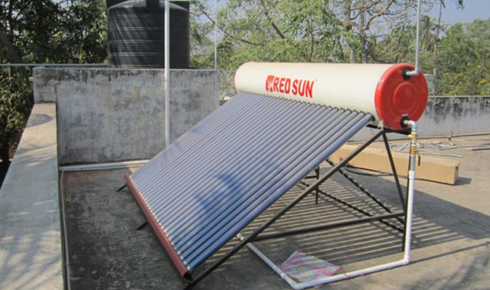As the world moves toward sustainable energy solutions, India has emerged as one of the leading nations in adopting renewable energy technologies. Among the most impactful innovations driving this change are rooftop solar companies in india and solar water heater systems. Together, these two technologies are transforming the energy landscape by reducing carbon emissions, cutting electricity costs, and promoting energy independence.
The Growth of Solar Energy in India
India, with its vast geographical expanse and abundant sunlight, is uniquely positioned to harness solar energy effectively. Over the past decade, the government and private sectors have worked hand in hand to promote solar adoption across residential, commercial, and industrial sectors. With ambitious goals under the National Solar Mission, India aims to achieve over 280 GW of solar energy capacity by 2030.
This surge in demand has led to the rise of numerous rooftop solar companies that design, install, and maintain solar systems for homes, businesses, and factories. These companies have made solar energy more accessible and affordable, ensuring that clean energy reaches every corner of the country.
Role of Rooftop Solar Companies in India
Rooftop solar companies in India are playing a pivotal role in transforming how energy is produced and consumed. Instead of relying entirely on grid electricity, consumers can now generate power directly from their rooftops using solar panels.
These companies offer end-to-end solutions, including:
- Site Evaluation and Design: Assessing the rooftop’s structure, orientation, and shading to ensure optimal solar generation.
- Installation and Commissioning: Handling panel installation, wiring, and inverter setup.
- Maintenance and Monitoring: Providing regular cleaning, system check-ups, and performance tracking through smart apps.
- Financing and Subsidies: Assisting customers in availing government subsidies and easy financing options.
Rooftop solar companies have revolutionized how individuals and industries view energy. By turning idle rooftop spaces into power-generating assets, they are helping India move closer to energy self-sufficiency.
Why Rooftop Solar Systems Are Becoming Popular
Rooftop solar systems have gained immense popularity due to their financial, environmental, and practical advantages. Some of the major reasons include:
- Lower Energy Bills: Solar panels significantly reduce dependency on grid power, leading to massive savings.
- Eco-Friendly Energy: Solar energy is 100% clean, reducing greenhouse gas emissions and fossil fuel consumption.
- Government Incentives: Subsidies of up to 40% for residential installations make solar more affordable.
- Quick Return on Investment: With reduced energy expenses, the system pays for itself within a few years.
- Low Maintenance: Solar systems require minimal upkeep and last for 20–25 years.
With continuous innovation and affordable pricing, rooftop solar power is becoming a preferred energy solution for millions of Indian households and businesses.
The Importance of Solar Water Heaters
Another essential application of solar energy is the solar water heater, a system designed to use sunlight to heat water for residential and industrial use. These heaters consist of solar collectors that absorb sunlight and convert it into thermal energy, which is then used to heat water stored in insulated tanks.
Solar water heaters are highly efficient and can meet up to 80% of a household’s annual water heating needs. For industries like hospitality, textiles, and manufacturing, these systems drastically reduce energy consumption and operational costs.
Benefits of solar water heaters include:
- Energy Efficiency: Converts free solar energy into usable heat.
- Cost Savings: Reduces electricity or gas bills used for heating water.
- Eco-Friendliness: Emits zero pollutants and reduces carbon footprint.
- Durability: Can last for decades with proper maintenance.
These systems have become a preferred choice in India, especially in regions with high solar radiation throughout the year.
Combining Solar Rooftop Systems and Solar Water Heaters
By integrating rooftop solar systems with solar water heaters, users can maximize their solar benefits. While rooftop panels generate electricity, solar heaters provide thermal energy for hot water, together ensuring efficient utilization of solar power. This combination allows households and businesses to achieve near-total energy independence and sustainability.
Industries that consume both electricity and hot water can significantly cut operational costs by investing in these dual systems. Additionally, the reduction in fossil fuel consumption contributes to India’s overall environmental goals and energy conservation efforts.
Future of Solar Energy in India
The future of solar energy in India is bright and full of potential. With technological advancements, falling costs, and strong government support, the adoption rate is expected to grow exponentially in the coming years. Smart grids, energy storage solutions, and AI-based monitoring systems are also enhancing the efficiency of solar installations.
Rooftop solar companies continue to innovate, ensuring solar energy becomes accessible to every citizen. Combined with the widespread use of solar water heaters, India is on a path toward becoming a global leader in renewable energy.
Conclusion
The integration of renewable technologies such as rooftop solar companies in India and solar water heater systems marks a new era of sustainable development. These innovations not only empower individuals and industries to save on energy costs but also contribute significantly to environmental preservation.
By embracing solar energy today, India is investing in a cleaner, greener, and more self-reliant tomorrow—where the power of the sun fuels progress for generations to come.




